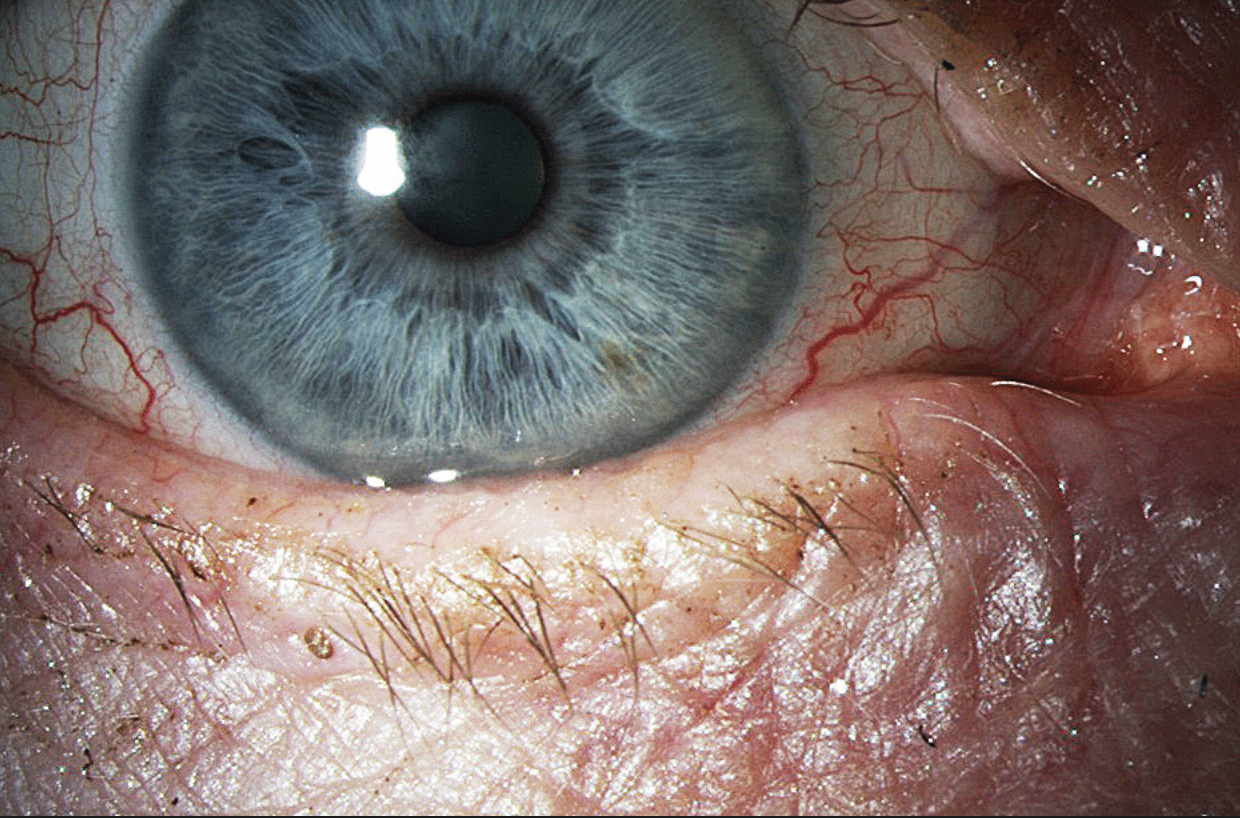 |
|
Dyslipidemia, which increases the risk of cardiovascular disease, seems to be more common in patients with MGD. Photo: Gregory Moore, OD. Click image to enlarge. |
Dyslipidemia, affecting between 15.1% and 45.1% of individuals, is a cardiometabolic risk condition characterized by elevated serum levels of total cholesterol (hypercholesterolemia), triglyceride (hypertriglyceridemia), low-density lipoprotein and reduced levels of high-density lipoprotein. Given that meibum is lipid in nature, evidence from a new study in Optometry and Vision Science suggests there may be an association between dyslipidemia and meibomian gland dysfunction (MGD). After their systematic review and meta-analysis, the researchers found that patients with MGD were more likely to have hypercholesterolemia and hypertriglyceridemia and consequently proposed that dyslipidemia screening may be appropriate following MGD diagnosis.
Three case-control and two cohort studies from various online databases were evaluated by the study group. The association between dyslipidemia and MGD was assessed using odds ratios.
The researchers reported that the pooled odds ratios of hypercholesterolemia and hypertriglyceridemia in MGD were 5.45 and 3.28, respectively. Additionally, the odds of elevated serum low-density lipoprotein and reduced high-density lipoprotein in MGD were 2.72 and 1.15, respectively.
“Individuals with MGD have significantly higher odds of hypercholesterolemia,” the study authors noted in their paper. “Hypercholesterolemia is a well-established risk factor for cardiovascular events such as peripheral vascular, cerebrovascular and ischemic heart disease. Abnormally high cholesterol level in meibum has been hypothesized to be key in the pathophysiology of MGD.”
Additionally, the association between MGD and hypertriglyceridemia was also a significant study observation though it’s been demonstrated in research before. The study group pointed out that the reduction of serum triglyceride levels can improve meibomian gland health; for example, various studies have shown that omega-3 fatty acid supplements, known to reduce serum triglyceride levels, may improve meibum quality, meibomian gland obstruction and subjective dry eye symptoms.
An important limitation of this study is that the effects of gender, age and MGD severity on the association between dyslipidemia and MGD were not assessed.
This new research revealed a significant association between elevated low-density lipoprotein and MGD and, conversely, showed no association between abnormal serum high-density lipoprotein and MGD. Due to these findings, the authors suggested that “MGD diagnosis may call for dyslipidemia screening.”
Chen S, Abu-Qamar O, Kar D, et al. Ultrahigh resolution optical coherence tomography markers of normal aging and early age-related macular degeneration. Ophthalmol Sci. February 1, 2023. [Epub ahead of print]. |


